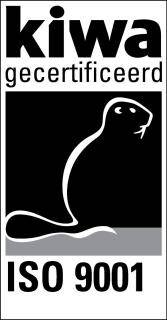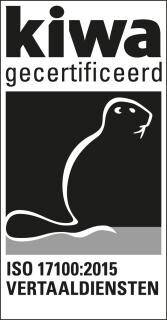.jpg)
The importance of good translation to the internationalisation of your company
“Why should we translate our texts into other languages? Everyone understands English right?”
You sometimes hear marketers say this, especially if they are anxious to remain within budget. Translation and localisation are often among the first things to be scrapped. Or the cheapest option is chosen, meaning everything is only translated into English. Despite this mindset, multilingual websites, marketing material and products are useful, lucrative, and important keys to international success. Here are five things to consider that underline the importance of good translation work when internationalising your company.
1. No, not everybody speaks English.
As a large proportion of their jargon already consists of English words, it may be hard for many marketers to conceive that not all consumers have a command of the English language. English language marketing in countries like China won’t get you very far, and in many European countries only the younger generation are able to speak English. By translating products and content for the international market into every relevant language, you increase your reach, brand awareness and your company’s success.
2. With good translation work, you make a strong first impression
You know what they say about a first impression: you only get one chance to make it. If you make the effort to engage with international consumers in their own language, you immediately create a good impression, and a sense of goodwill. Not only do you make information more accessible to them, but you also add a personal touch. You show them that you care. This shows professionalism and engagement, which emanates through your company. You’ll already have an advantage with consumers from the first meeting, which will transfer to your sales results.
3. A translation conveys information more accurately
It’s very important that information is clearly understood, especially when this information is very technical or specific. An instruction manual for a complex machine shouldn’t only be clearly laid out, but be concise and not create any ambiguity for the reader. A good translation helps, especially when carried out by an expert translator, who is familiar with the specific jargon and knows how to address the target group. Translated manuals and other forms of documentation make your products more attractive and user friendly for appreciative end users. Clear information helps you to use your products properly, which in turn saves time and money in regards to customer service and technical support.
4. Product localisation is sometimes born out of necessity
Translating products and accompanying information is sometimes not only a conscious choice, but one born out of necessity. The source descriptions may not comply with the specific legal provisions in another country, or may not adhere to customs within the local culture. In this instance, localisation is a must. Localisation means that products such as software, marketing texts, websites, audio visual material, books and trade journals are adapted for suitability of use in other countries or regions. The translation process takes cultural values and norms into account, as well as the needs and expectations of the specific target market. A Chinese product can, for example, be localised for the western market. This process can also be reversed. Localisation involves more than just translation and can even lead to complete text re-writes. Knowledge of the market, the culture of a country or the existing levels of technical skills is essential.
5. Multilingual products make your company more attractive to international partners
The translation and/or localisation of products makes them more attractive to the international market, and therefore also to distributors and other partners. During negotiations, you’ll always be in a stronger position if you can present localised versions of your products and other materials. Sometimes, these are essential to obtain access to a market, and they will also help you gain a foothold more quickly. In short: good localisation is, at the very least, a major contributor to international growth, if not a prerequisite.
Essential to all of this: ensure high quality translations
Even if you’ve considered these five recommendations, you are not necessarily guaranteed the desired results. Because, in regards to multilingual content, the most important thing is perhaps the most obvious: you must never lose sight of quality. We've already mentioned it, but we strongly recommend that you have your translation and localisation work done by professional, expert translators. A poor quality translation is not only a waste of money, time and effort, but can be extremely damaging to your brand name and company reputation. There is nothing so unprofessional as a poorly translated website, which has obviously been run through Google Translate, or a brochure teeming with spelling mistakes and grammatical errors.
That’s why it’s vital to allow your content to be provided by professionals, who are familiar with local customs and cultures, and know how to write texts that will effectively engage the target audience. So use a professional text and translation agency like AgroLingua. They employ native speakers, who know your products and the local markets, and know the difference between translation and localisation. This way, you ensure that your multilingual products and materials contribute effectively to the success of your company.
Want to know more about the importance of good translation to the internalisation of your company? Then get in touch with the translation and localisation specialists at AgroLingua!
Terug naar blogs




.png)

